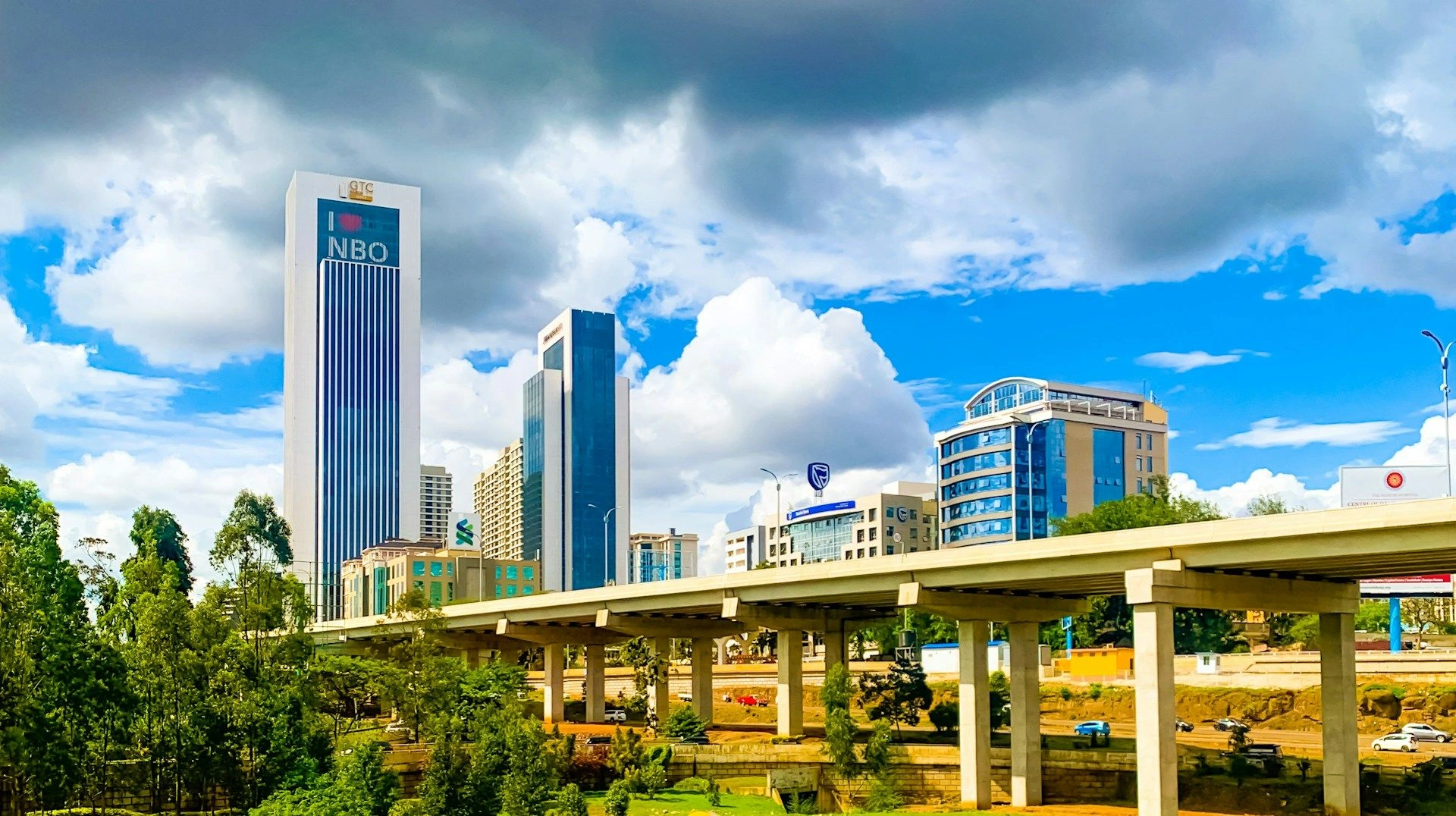Verified Investment Listings in NairobiReal estate shapedby trade, tech, and growth

Best offers
in Nairobi
Benefits of investment in
Kenya real estate

Guide for real estate
investors in Kenya
read here
Nairobi — East Africa’s investment hub
Kenya’s capital leads the region in business, infrastructure, and urban housing development.
Strong rental returns in gated communities
Expats and upper-middle-class locals prefer secure, well-managed residential areas.
Simple ownership for foreign buyers
Foreigners can lease land and own property through clear and legally defined channels.
Nairobi — East Africa’s investment hub
Kenya’s capital leads the region in business, infrastructure, and urban housing development.
Strong rental returns in gated communities
Expats and upper-middle-class locals prefer secure, well-managed residential areas.
Simple ownership for foreign buyers
Foreigners can lease land and own property through clear and legally defined channels.
Property highlights
in Kenya, Nairobi from our specialists
Found: 0

Useful articles
and recommendations from experts
Real Estate in Nairobi, Kenya
Why Invest in Property in Nairobi
Nairobi, the capital and economic heart of Kenya, is one of the most dynamic property markets in Africa. With a population exceeding 4.5 million and a status as East Africa’s main commercial hub, the city attracts regional headquarters, diplomatic missions, expats, and a rising middle class. Its strong GDP growth, urbanization, and infrastructure development have fueled continuous demand for housing, commercial space, and mixed-use developments. Nairobi's real estate sector offers high returns, a diversified property portfolio, and growing interest from both local and foreign investors.
Types of Property Available
The Nairobi market offers diverse investment opportunities:
- Residential apartments — High-rise and low-rise developments in areas like Kilimani, Kileleshwa, and Westlands.
- Townhouses and villas — Located in gated communities in Karen, Runda, Lavington, and Gigiri, popular with diplomats and families.
- Affordable housing units — Targeting Nairobi’s growing workforce in areas like Embakasi, Ruaka, and Athi River.
- Office space — Grade A and B commercial buildings in Upper Hill, Westlands, and the CBD.
- Retail properties — Malls, shopfronts, and mixed-use developments in growing suburbs and transport nodes.
- Land plots — For both residential and commercial development, especially in the city’s outer zones and satellite towns.
Ownership and Legal Framework
Kenya offers a relatively structured legal environment for property investment:
- Freehold and leasehold options — Foreigners can own property on leasehold terms (up to 99 years), especially for urban land.
- Foreign ownership — Direct ownership is permitted for apartments; for land, foreigners must hold property through registered Kenyan entities.
- Title registration — All land and property must be registered under the Ministry of Lands; due diligence is essential due to occasional title disputes.
- Legal support — Engaging a licensed conveyancing lawyer is critical for verifying ownership history, zoning status, and encumbrances.
- Transaction process — Includes offer letter, sale agreement, land control board approval (if applicable), and title transfer registration.
- Taxes and fees — Stamp duty is 4% (urban) or 2% (rural), plus registration fees and lawyer costs (typically 1.5% of property value).
Property Prices and Market Trends
Nairobi’s property market reflects its segmented economy:
- Luxury apartments (Westlands, Kilimani): $1,200 – $2,500 per m² (€1,100 – €2,300)
- Middle-income apartments (South B, Embakasi): $600 – $1,200 per m² (€550 – €1,100)
- Villas in Karen, Runda, Lavington: $300,000 – $1,000,000+ depending on size and location
- Commercial offices (Upper Hill): $1,500 – $2,800 per m² (€1,400 – €2,600)
- Retail units: $2,000 – $3,500 per m² depending on traffic and visibility
- Land plots: $100 – $500 per m² in suburban areas; higher in central zones
- High-end apartments: 5%–7%
- Middle-income housing: 7%–10%
- Commercial property: 8%–12%, depending on tenant profile and location
Top Investment Locations in Nairobi
Key investment zones include:
- Westlands — Popular with expats and businesses; home to malls, schools, and international firms.
- Kilimani — High-rise residential and mixed-use developments with solid rental demand.
- Runda, Karen, and Gigiri — Diplomatic neighborhoods with luxury villas and strong resale values.
- Ruaka, Athi River, and Kitengela — Satellite towns ideal for land banking and affordable housing projects.
- Upper Hill — Nairobi’s financial district, with demand for Grade A office space.
- Ngong Road and Mombasa Road corridors — Undergoing major infrastructure upgrades, improving property values.
Buyer Profiles and Investment Strategies
Real estate in Nairobi attracts a wide range of investors:
- Local developers — Building and selling apartments to Kenya’s urban population.
- Diaspora investors — Kenyans living abroad acquiring family homes or income-generating property.
- Foreign buyers — Seeking high-yield assets, especially in commercial and diplomatic neighborhoods.
- REITs and funds — Targeting large commercial assets, malls, and multi-tenant buildings.
- Buy-to-let landlords — Investing in affordable housing with steady cash flow.
Risks and Considerations
Investors should be aware of:
- Title verification — Disputes over land titles are not uncommon; always use a qualified lawyer for due diligence.
- Political cycles — Elections can affect market activity and foreign confidence, though core segments remain stable.
- Developer delays — For off-plan purchases, ensure contracts include performance clauses and escrow protections.
- Currency fluctuation — The Kenyan shilling may fluctuate, impacting returns for foreign investors.
- Rental regulation — Landlord-tenant laws are pro-tenant; vetting and documentation are key to smooth leasing.
Conclusion: Who Should Invest in Nairobi
Nairobi is a leading real estate destination in Sub-Saharan Africa, offering robust economic fundamentals, infrastructure growth, and investment-friendly laws. Whether acquiring luxury apartments, affordable rentals, office towers, or strategic land for development, investors benefit from strong rental yields, capital appreciation, and a growing urban population. Nairobi’s real estate market is especially suitable for buy-to-let investors, diaspora clients, and commercial funds seeking exposure to East Africa’s economic powerhouse.